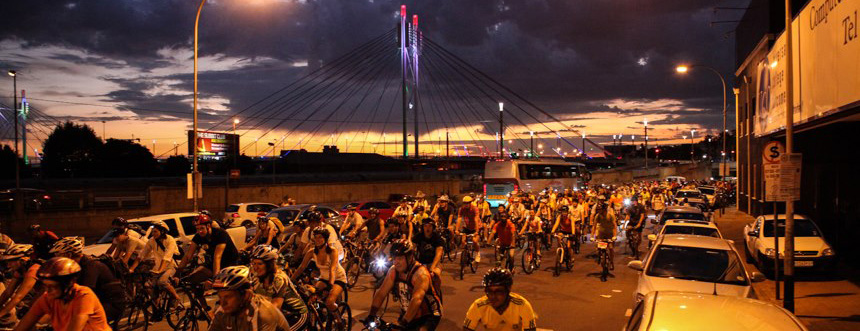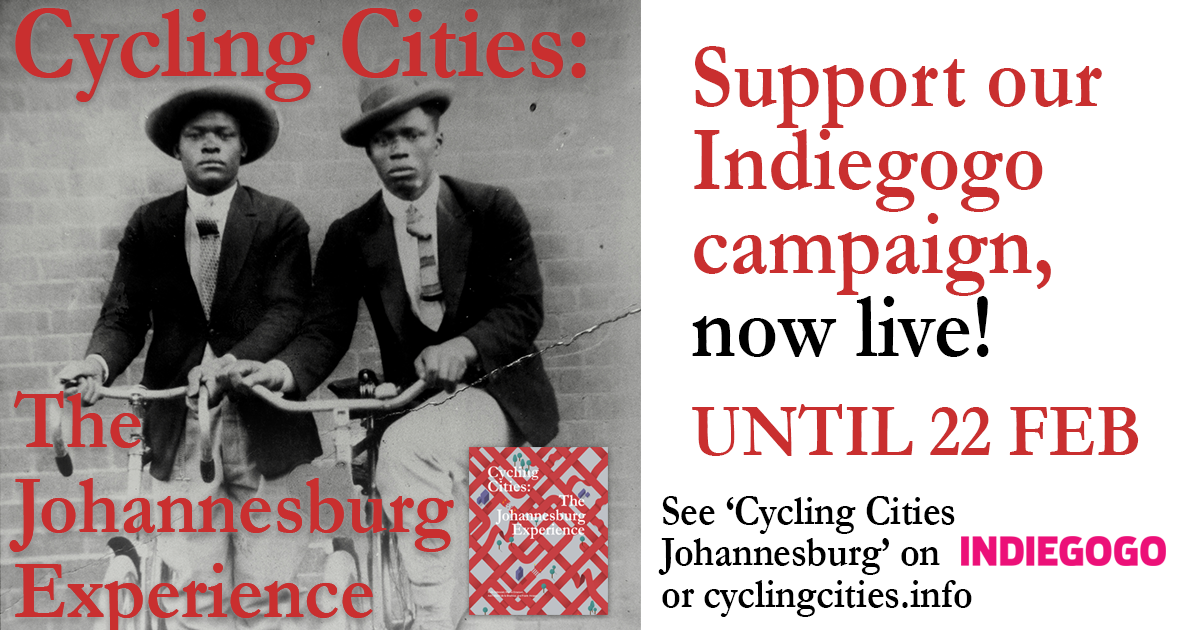Buy our book and support this campaign at Indiegogo – now live (14.01-22.02)!
Download our 2-page PDF for a compact update on this book project
Bringing Johannesburg’s history of urban cycling from the archive into the present
Today, Johannesburg is synonymous with the automobile. Highways, robots, the minibus taxi, and the 4×4 are emblematic of southern Africa’s economic heart. Challenging a future locked in to these spatial patterns is a key policy goal today, reflected in the efforts of the city, province and civil society to offer more and better alternatives to car dominance. Yet other mobility cultures once beckoned – such as the forgotten history of Johannesburg’s working-class commuter cycling culture. Njogu Morgan’s pioneering archival research has brought this very different Johannesburg to light – one where bicycle lanes crept along the Rand before the first motorway.
Cycling Cities: The Johannesburg Experience brings this important and challenging history to a new public, and starts a dialogue between Johannesburg and the cycling histories of a growing number of cities worldwide. In so doing, it not only provides a historical context for future discussions about cycling, but illuminates the dynamics behind the governance of cycling in the past. In particular, The Johannesburg Experience tells the human story of how the mobility that bicycles afforded people of colour, and particularly black working-class men, challenged Apartheid dreams of control.
These findings, combined with Morgan’s careful analysis of the prospects for utility cycling using current theories of socio-technical change, contributes to current mobility thinking in the African city by taking cycling seriously as a practice that is social, cultural, technological and political. However, the book’s orientation to a non-specialist audience, coupled with its many archival photographs, ensures it a wide readership among cyclists, activists and civil society, policymakers and mobility professionals. Moreover, its structure within an expanding range of path-breaking urban cycling histories offers an unprecedented ease of comparison and contrast between Johannesburg and the world.
Help us to find sponsors for this project. We have over 50 percent funded. We seek institutional or individual sponsorship: contact Brett Petzer, at b.j.m.petzer@tue.nl.
More about the author
Njogu Morgan took undergraduate studies in Political Science and International Relations at Northwestern University, Chicago, and a Master’s in Public and Development Management from the University of the Witwatersrand before completing his PhD in Town and Regional Planning at the same institution. His doctoral research, which examines the changing dynamics of bicycle use in Amsterdam, Beijing, Chicago and Johannesburg, forms the basis for this book, along with Morgan’s involvement in present-day efforts to bring about a more cycleable greater Johannesburg through organisations such as JUCA, the Johannesburg Urban Cyclists’ Association.
“In the wake of the bicycle’s role as an affordable transport solution that also delivers health, economic, environ-mental and other social benefits, one intention of the book is to re-inject a sense of agency into bicycle planning in Johannesburg. A major theme of the book is how deliberate (and unintentional) decisions by a variety of actors transformed the city into a less friendly space for the bike. Therefore, while some of those decisions made in the past have strong echoes today (inhibiting everyday cycling), other ones can be taken over time to create a better cycling context.”
– Njogu Morgan

